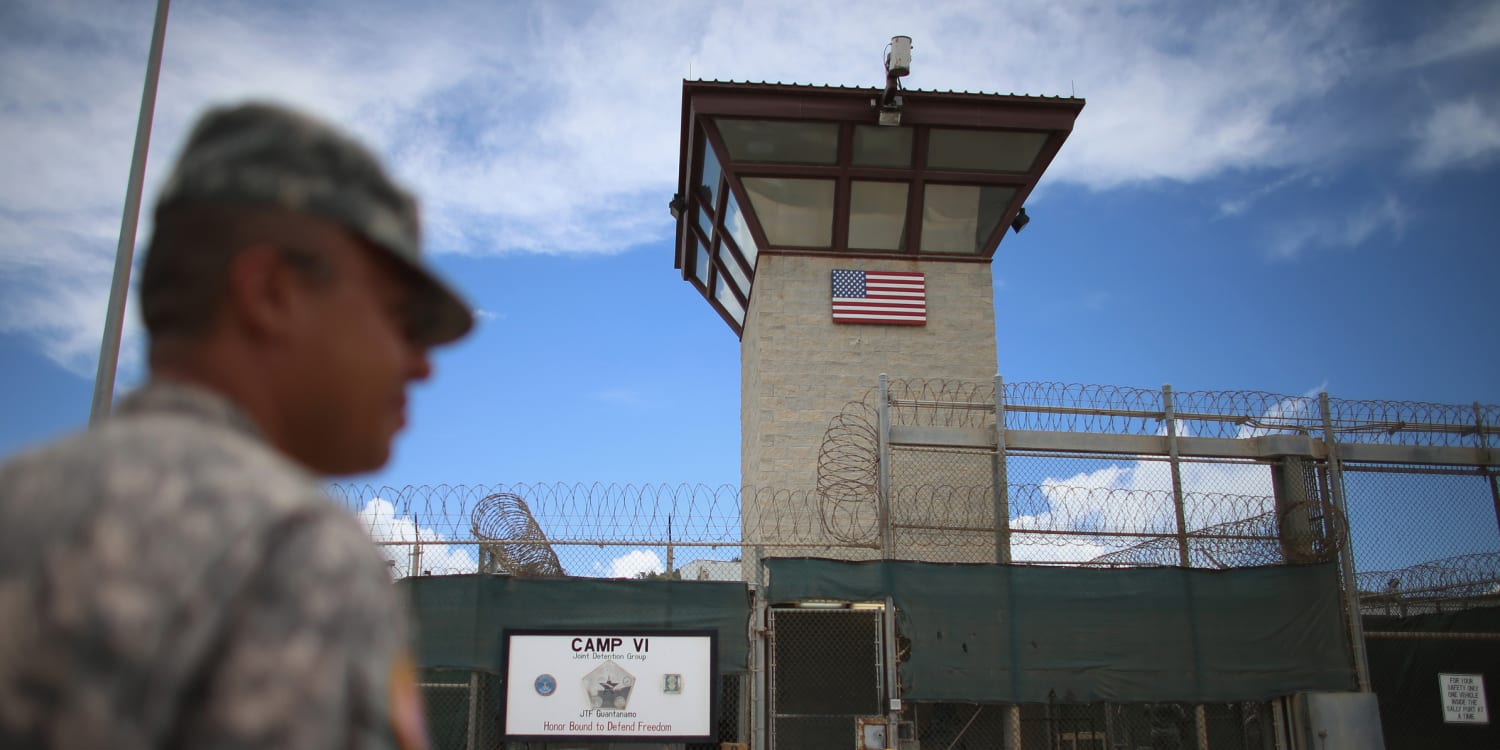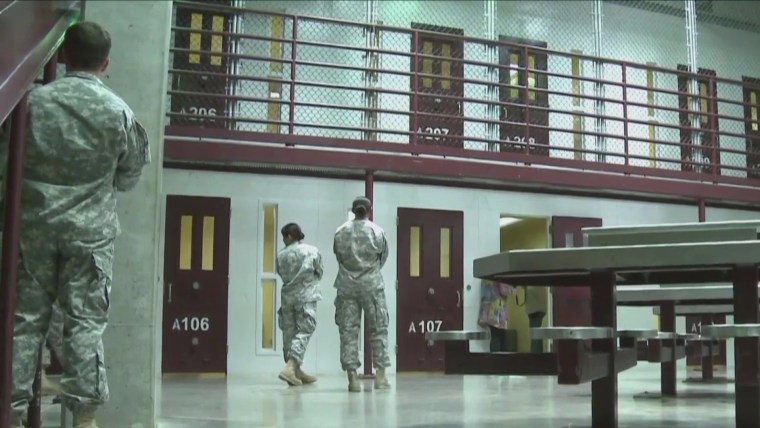WASHINGTON — The Supreme Court on Wednesday will consider whether Abu Zubaydah, the first Sept. 11 terrorism suspect known to have been tortured by the United States overseas, can be told about his treatment, including where he was held.
The CIA captured Zubaydah in Pakistan 19 years ago, believing he was a high-ranking figure in Al Qaeda — a notion the CIA later concluded was wrong, according to a Senate Intelligence Committee study. His lawyers said he was held at several secret locations overseas, known as black sites, where during interrogations he was repeatedly waterboarded, slapped and slammed into walls, crammed into a small box, and deprived of sleep for days at a time.
In 2006 he was transferred to the custody of the Defense Department and moved to the U.S. military base at Guantanamo Bay, Cuba, where he remains. To help pursue legal claims against Polish officials who he says were complicit in his detention and treatment at a black site in Poland, he now wants access to two former CIA contractors who devised and helped carry out the U.S. torture program.
But the Justice Department, under both the Trump and Biden administrations, moved to block Zubaydah’s efforts, arguing that some information about his treatment remains a state secret, including the names of the countries where CIA black sites were located.
“Certain categories of information — including the identities of its foreign intelligence partners and the location of former CIA detention facilities in their countries — could not be declassified without risking undue harm to the national security,” U.S. government lawyers said in their Supreme Court written briefs.
Former CIA Director Mike Pompeo said in a court declaration that the agency sought help from foreign governments with a pledge “to keep any clandestine cooperation with the CIA a secret.” Maintaining the confidentiality is critical to the CIA’s ability “to convince foreign intelligence services to work with us.”
But Zubaydah’s lawyers argue that the location of the CIA’s black site is no longer a secret. The European Court of Human Rights determined that he was moved to Poland in December 2002 and held there for nine months, citing an interview with Poland’s former president, who said officials agreed to let the CIA operate there but denied knowing about any torture.
Providing access to the former CIA contractors would not constitute official confirmation of where the black sites were located, Zubaydah’s lawyers told the Supreme Court, “because the witnesses are not agents of the government and cannot speak on its behalf.”
A federal judge in California blocked Zubaydah from questioning the former CIA contractors, but the U.S. Court of Appeals for the 9th Circuit said some of the information, including the location of a black site in Poland, was no longer secret.
Richard Paez, one of the appeals court judges, said, “In order to be a ‘state secret,’ a fact must first be a ‘secret.'” The appeals court directed the trial judge to sort out which information should be covered by the state secrets privilege.
The government then appealed to the Supreme Court, which last heard a case involving Guantanamo Bay detainees more than a decade ago, ruling that they have some limited legal rights under the Constitution. But this case comes before a much more conservative court.
Source: | This article originally belongs to Nbcnews.com












